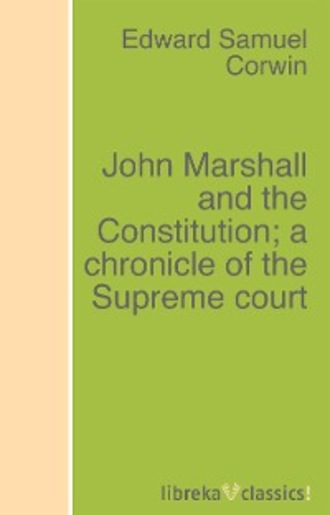
Полная версия
John Marshall and the Constitution; a chronicle of the Supreme court
The great lack of the Federal Judiciary during these early years, and it eventually proved well-nigh fatal, was one of leadership. Jay was a satisfactory magistrate, but he was not a great force on the Supreme Bench, partly on account of his peculiarities of temperament and his ill-health, and partly because, even before he resigned in 1795 to run for Governor in New York, his judicial career had been cut short by an important diplomatic assignment to England. His successor, Oliver Ellsworth, also suffered from ill health, and he too was finally sacrificed on the diplomatic altar by being sent to France in 1799. During the same interval there were also several resignations among the associate justices. So, what with its shifting personnel, the lack of business, and the brief semiannual terms, the Court secured only a feeble hold on the imagination of the country. It may be thought, no doubt, that judges anxious to steer clear of politics did not require leadership in the political sense. But the truth of the matter is that willy-nilly the Federal Judiciary at this period was bound to enter politics, and the only question was with what degree of tact and prudence this should be done. It was to be to the glory of Marshall that he recognized this fact perfectly and with mingled boldness and caution grasped the leadership which the circumstances demanded.

